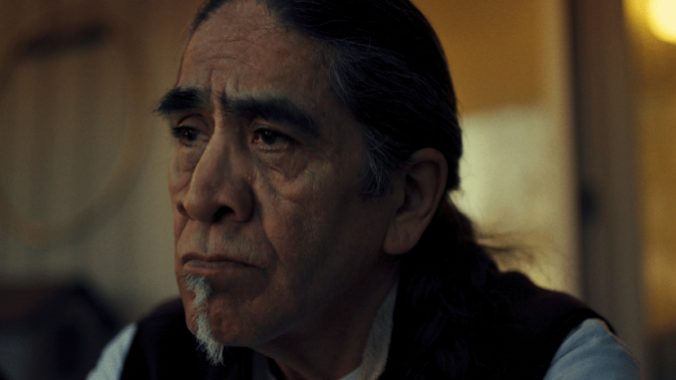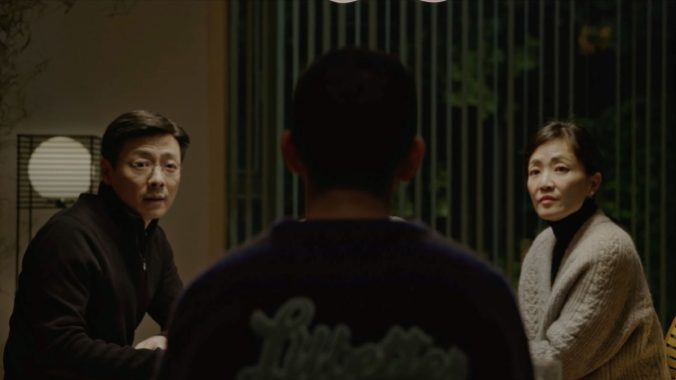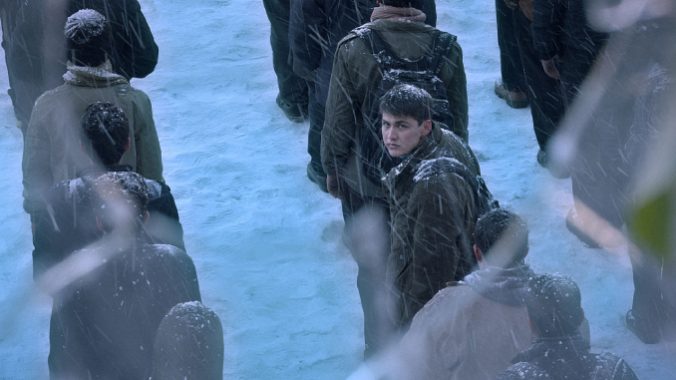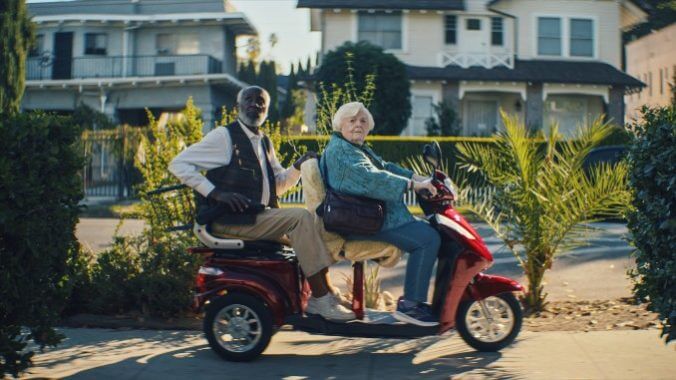Which Sundance 2024 Movies You Should Watch at Home

So, which movies should you pick for your Sundance 2024 watch at home? After years where shoving a bunch of people from all over the world into cramped Utah movie theaters simply hasn’t been possible due to the intensity of the COVID-19 pandemic, the Sundance Film Festival is slowly moving away from its hybrid online model and towards a full return to the in-person fest. That said, while the focus is now on the Park City event, some (but certainly not all) of the movies programmed at the fest will be available for viewing with the purchase of an online ticket. Digital ticketing has already been in progress, but the actual screenings begin January 25 and run through January 28. You can also snag the awards package to watch eight of the fest’s winners during the fest’s final 48 hours. But single-ticket purchases are probably still the way most people will be watching these movies early, even if the prices increased to $25 from $20 last year. It’s still not that far off from going down to the multiplex, or renting something on Premium On Demand, and there are plenty of movies worth watching at home.
The online platform has been nothing but a godsend to those unable or unwilling to travel to the festival, and it remains a safe and secure option to watch some of the movies that will go on to dominate the film conversation for the rest of the year. I’ve been a big fan of the virtual component of the fest and have been using it for all my Sundance viewing for the past three years.
Alas, some of the buzziest films at Sundance 2024 just aren’t going to screen from the comfort of your living room. But don’t worry, we’ve narrowed down our picks for what you should check out to those that will be available to the public online. Now that we at Paste have seen a slew of movies from the program—even more than we highlighted in our Most Anticipated list—we’ve got some suggestions on where you should spend your Sundance dollars.
Here are the 10 movies you should watch at home from Sundance 2024:
Agent of Happiness

Imagine if your government was, even superficially, concerned with your happiness. While so many countries use the boogeyman of The Economy to distract its people from the atrocities of the world (sometimes committed by those very countries), Bhutan, brilliantly, found a far buzzier acronym than Gross Domestic Product. It tracks Gross National Happiness. No more worrying about vague manipulable factors like inflation or the unemployment rate—just ask yourself, “Am I happy?” Ok, to be fair, Arun Bhattarai and Dorottya Zurbó’s documentary Agent of Happiness makes it clear that it’s a lot more complicated than that (and just as made up as stock prices). But even if the Bhutanese government doesn’t really care if its people are happy, posing this question to its populace is at least a diversion that encourages introspection. Those on the front lines, collecting this data for the government, are professionally confronted by life’s biggest question, interpreted by people from all walks of life. The quiet, intimate charms of Agent of Happiness pulse from this poignant collective consideration, filtered through the personal experience of a professional happiness inspector. Amber and his coworker drive around the mountainous countryside, looking for folks whose lives they can translate into numbers, recorded on forms and diluted down to a single digit through their job’s complex happiness formula. These census-takers strike a memorable image, in their plaid knee-length gho, white tego underneath with sleeves rolled back, black baseball caps and tall socks. Door-to-door style-wise, Mormons have nothing on Bhutanese government officials. As Amber plays air guitar in the passenger seat and chats about his lacking love life, Agent of Happiness immerses us in a doc that’s partially invested in the day-to-day of a unique profession, partially enraptured by the beauty of Bhutan’s bright colors and vast vistas, and partially surprised to have found itself on a buddy-comedy road trip. As we watch everyday people think deeply about this high-stakes satisfaction survey, the act of asking our friends and neighbors how they’re doing—how they’re really doing—develops an alluring grassroots appeal beyond the bragging rights of institutions. Agent of Happiness, with its personal point-of-view and delightfully candid discussions, motivates us to use our compassion for individuals to see past this façade.
And So It Begins

The 2022 presidential elections in the Philippines was a battle between the son of a right-wing dictator and a grassroots liberal, an explosion of misinformation, a blow to journalism, a heartbreaking account of history repeating itself and a colorful, musical spectacle. Plenty, that is to say, for American audiences to relate to as we head towards our own 2024 elections which will feature, in all likelihood, a frontrunner who will still be on trial for defrauding the U.S. government. And So It Begins, documentarian Ramona S. Diaz’s follow-up feature to A Thousand Cuts (her doc on journalist Maria Ressa and her publication Rappler’s conflicts with ex-president Rodrigo Duterte, which premiered at Sundance in 2020), is a familiar enough campaign narrative, but with enough sense of the scope and scale to hold our interest. Paired with its appreciation for the onslaught of Barbie pink, karaoke singing and choreographed dance routines that pepper Leni Robredo’s populist run, and the documentary gains an observational quality of a culture at a crossroads. There is the new wave of progression and the entrenched conservatism, beaten into a country by authoritarians, lingering colonial specters and misguided hopes for the future. And So It Begins‘ great strength is not in documenting the beats of this election, but in conveying how those participating in it are drawn down each path.
Black Box Diaries

All stories documenting the personal anecdotes making up the #MeToo movement are courageous. Speaking up about a painful truth, knowing that if society at large was going to listen with generosity or empathy, well, it wouldn’t need a movement to get these tales told. They are brave alliances between survivors and journalists, battling entrenched sexism with unrelenting professionalism and mutual trust. Black Box Diaries tracks a moving #MeToo story that brought the movement to Japan, from the crime itself, through the journey of going public and to the uneasy closure of its long war of attrition. Its devastation is familiar. But because filmmaker Shiori Itō is both survivor and journalist, and recorded her own investigation into her assault in real time, the documentary becomes a thrilling testament to her exceptional, tenacious agency in the face of a hostile world. A bit like how Navalny saw Russian opposition leader Alexei Navalny pursue the men Vladimir Putin sent to assassinate him, there’s a macabre adrenaline running through the first-person perspective of Black Box Diaries. Nobody has the same incentive to bring about justice than the survivors themselves. There’s also the same interconnectedness of sinister power on the other side: Itō’s attacker is Noriyuki Yamaguchi, biographer of then-Prime Minister Shinzo Abe, whose government maintained the same sexual assault laws for over a century. Yamaguchi’s political and police connections protect him from arrest at least once, and gets a helpful detective removed from Itō’s case. If all sexual assault cases are uphill battles, Itō’s is a Sisyphean conspiracy. And we get a front-row seat to the endless struggle. Not shying down from the crushing interconnectedness of powerful forces set against her, Itō’s journalistic rigor and personal vulnerability prevents a landmark moment in a movement from becoming a simple summary in a history book.
Brief History of a Family

The kind of psychological thriller crafted with such delightful tension that you can’t help but smile as you squirm, Brief History of a Family is an infectious good time about a Chinese family slowly succumbing to the (possibly) sinister affections of their son’s quiet classmate. Writer/director Jianjie Lin’s feature debut pulls from plenty of genre influences (its class dynamic and affluent apartment setting will be familiar to Parasite fans) to construct a tight dramatic metaphor encompassing Chinese parenting values and the end of the country’s one-child policy. With eerie framings and excellently tense performances from Feng Zu and Keyu Guo as parents with plenty of secrets, Brief History of a Family will keep you guessing throughout its crisp 99-minute runtime.
-

-

-

-

-

-

-

-

-

-

-

-

-

-

-

-

-

-

-

-

-

-

-

-

-

-

-

-

-

-

-

-

-

-

-

-

-

-

-

-













































